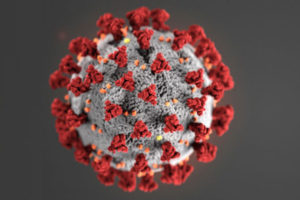COVID-19 increases extreme poverty in West Africa – Report
 The ripples of COVID-19 won’t go away soon. The impacts would be felt for a long time, and for West Africa, a new report shows that the pandemic has increased extreme poverty.
The ripples of COVID-19 won’t go away soon. The impacts would be felt for a long time, and for West Africa, a new report shows that the pandemic has increased extreme poverty.
A joint report by the Economic Commission of West African States (ECOWAS), the United Nations Economic Commission for Africa (UNECA) and the World Food Programme (WFP), released Thursday January 20, 2022, says the economic impact of COVID-19 has led to nearly 3 per cent increase in extreme poverty last year.
According to the Director of the ECA’s West Africa Sub-Regional Office, Ngone Diop, one of the strengths of the ECOWAS-WFP-ECA partnership was to “carry out an online survey, which has mobilized nearly 8,000 survey respondents in just two editions.”
In a press release copied to Ghana Business News, the report indicated that the proportion of people living on less than $1.90 a day increased from 2.3 per cent in 2020 to 2.9 per cent in 2021.
“The debt burdens of countries in the region have also increased in the context of slow economic recovery, shrinking fiscal space and weak resource mobilization,” the report said.
The study which focused on the impact of COVID-19, highlights the effects of the preventive measures including border closures, movement restrictions, and the disruption of supply chains.
“All these measures disrupted income-generating activities and exacerbated food price increases in the markets. The most affected are people who rely on unstable income sources such as small traders, street vendors and casual workers,” it said.
According to the report, the deteriorating economic situation has adversely affected the food security and nutrition situation of women, men, and children, noting that more than 25 million people in West Africa are unable to meet their basic food needs in the region, an increase of 34 per cent compared to 2020.
“The situation is most severe in conflict-affected areas such as the Lake Chad Basin, Liptako-Gourma and the Sahel region, forcing people to sell their assets and livelihoods to meet their food needs,” the report added.
Commenting, Sekou Sangare, ECOWAS Commissioner for Agriculture, Environment and Water resources said: “The Coronavirus health crisis has particularly annihilated the benefits gained by ECOWAS and its Member States in the fight against food insecurity and malnutrition.
“Even if we are happy with the governments’ response through the mitigation actions they have taken, we have to worry about the residual effects of the health and economic crisis as they are likely to continue disturbing our food systems for a long time while compromising populations access to food due to multiples factors,” he said.
Mrs Diop commenting further on the study, noted: “basing our analyses on primary, first-hand data from households directly impacted by the health crisis makes it is possible to offer decision-makers at the regional and national levels with relevant and better-targeted policy options.”
For Chris Nikoi, WFP Regional Director for West Africa, “The socio-economic impact of COVID-19 calls for immediate and concerted actions that target the root causes of people’s vulnerabilities. The cost of inaction will be higher for a population already facing multiple crises in the region.”
The reported also noted that since the outbreak of the pandemic in 2020, ECOWAS and its partners have put in place various economic and financial measures to respond to the increasing needs caused by COVID-19 in the region.
It added that in close collaboration with the West African Health Organization (WAHO), ECOWAS mobilized nearly $38 million in the first half of 2021 to meet the needs of the population.
The report stated that the ECOWAS Member States, with the support of their technical partners including WFP, have implemented an expansion of social protection programmes, as well as food distributions, for the most vulnerable communities.
By Emmanuel K. Dogbevi
Copyright ©2022 by NewsBridge Africa
All rights reserved. This article or any portion thereof may not be reproduced or used in any manner whatsoever without the express written permission of the publisher except for the use of brief quotations in reviews
